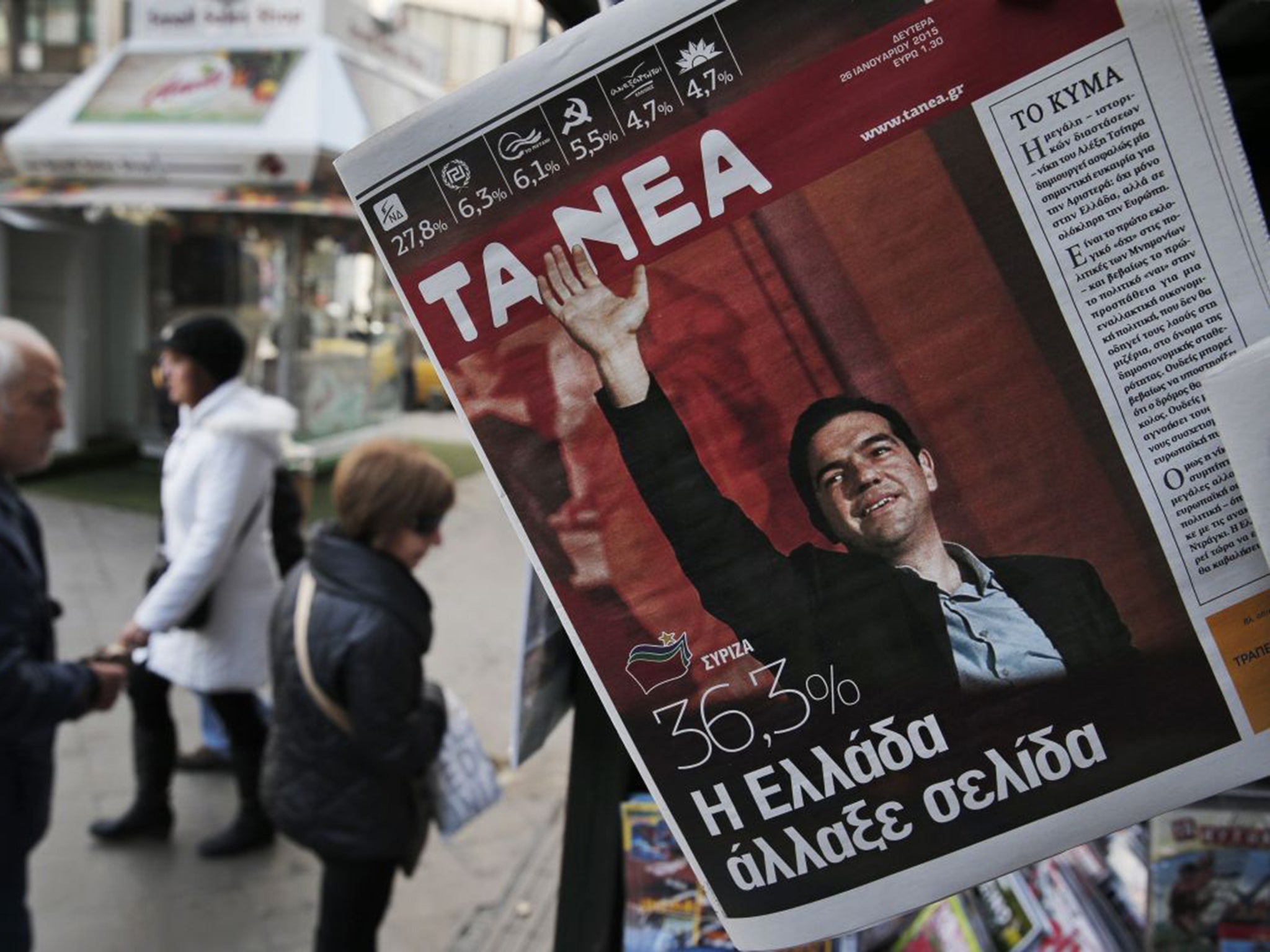Your support helps us to tell the story
From reproductive rights to climate change to Big Tech, The Independent is on the ground when the story is developing. Whether it's investigating the financials of Elon Musk's pro-Trump PAC or producing our latest documentary, 'The A Word', which shines a light on the American women fighting for reproductive rights, we know how important it is to parse out the facts from the messaging.
At such a critical moment in US history, we need reporters on the ground. Your donation allows us to keep sending journalists to speak to both sides of the story.
The Independent is trusted by Americans across the entire political spectrum. And unlike many other quality news outlets, we choose not to lock Americans out of our reporting and analysis with paywalls. We believe quality journalism should be available to everyone, paid for by those who can afford it.
Your support makes all the difference.Many believe that Syriza ministers, for all their radical rhetoric, will be desperate to avoid a Greek exit from the single currency and will thus be eager to compromise with their European creditors.
The assumption is that a Grexit would be catastrophic, inflicting even worse economic damage than the country has experienced in recent years. Banks would fail. Unemployment would shoot up still further. The economy would return to recession.
A delinquent Syriza-led government, unable to raise money on the private bond markets, would be forced to print money to pay government workers, setting off a tidal wave of inflation.
The opinion polls seem to suggest that Greeks believe they would be worse off out of the euro, with a large majority still in favour of remaining in the single currency.
Yet Mark Weisbrot, of America’s Centre for Economic and Policy, has a different view on the economic consequences of Greek exit.
That may be too optimistic as far as Greece is concerned. But it is not totally implausible. Argentina was economically crucified by its dollar peg in the early 2000s but grew rapidly after finally breaking it.
What the two scenarios underscore is the inherent uncertainty of economic outcomes. Berlin and Brussels would be foolish to assume they are negotiating from a position of overwhelming strength when they sit down opposite Syriza in the coming days.
Subscribe to Independent Premium to bookmark this article
Want to bookmark your favourite articles and stories to read or reference later? Start your Independent Premium subscription today.

Join our commenting forum
Join thought-provoking conversations, follow other Independent readers and see their replies
Comments